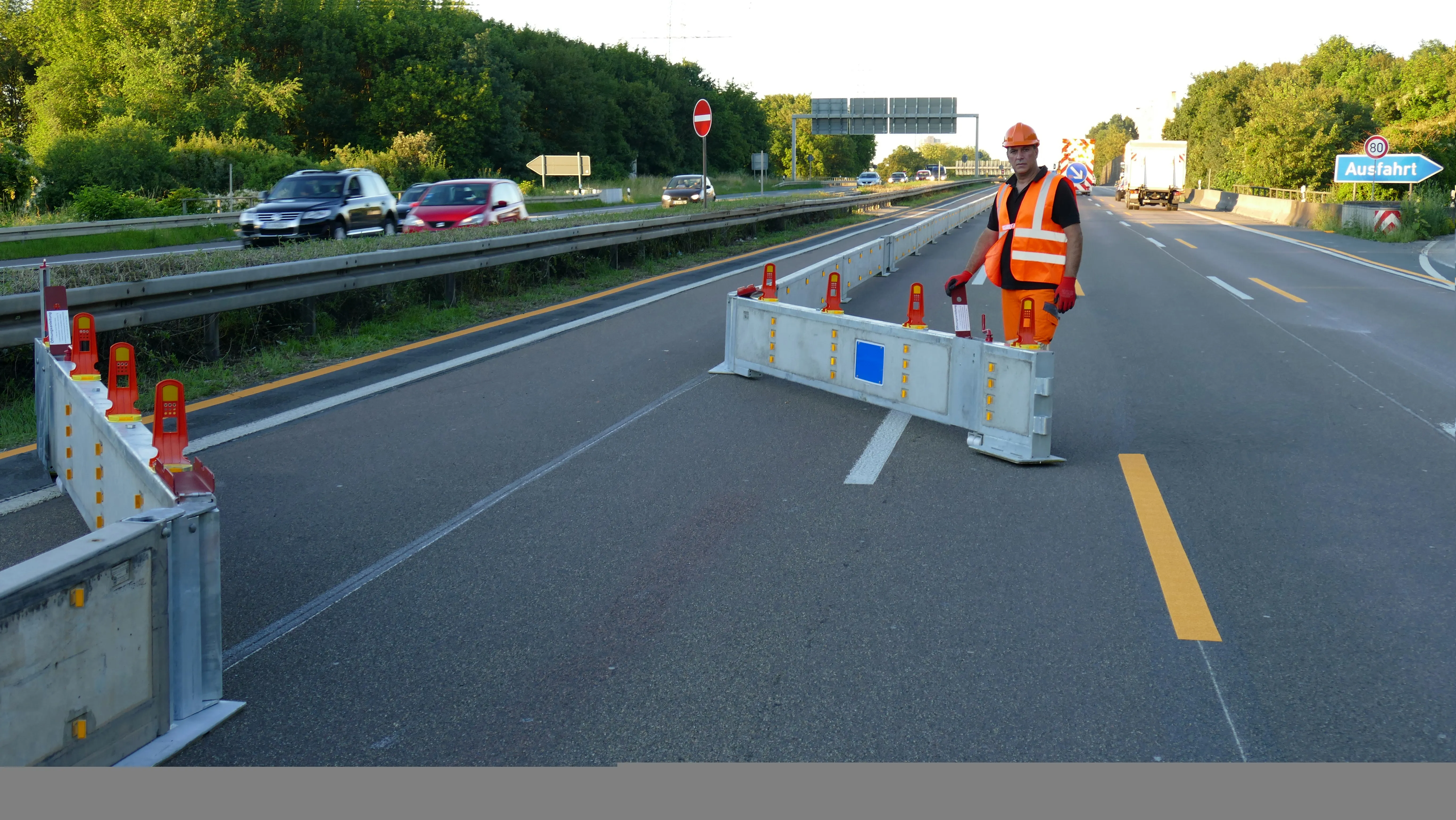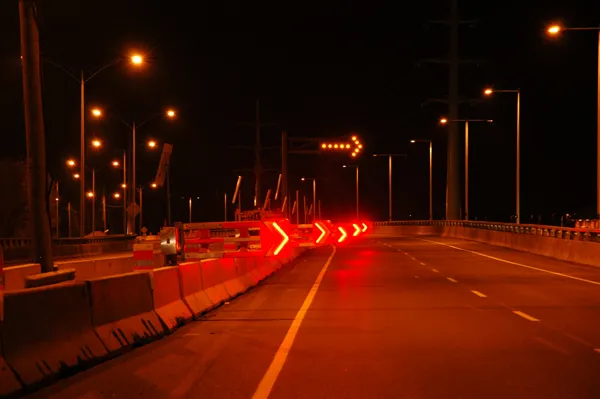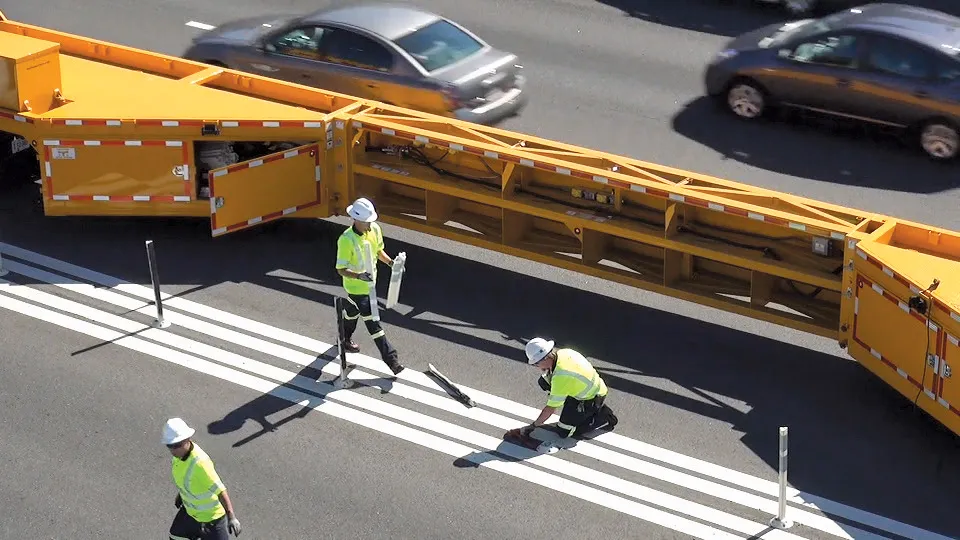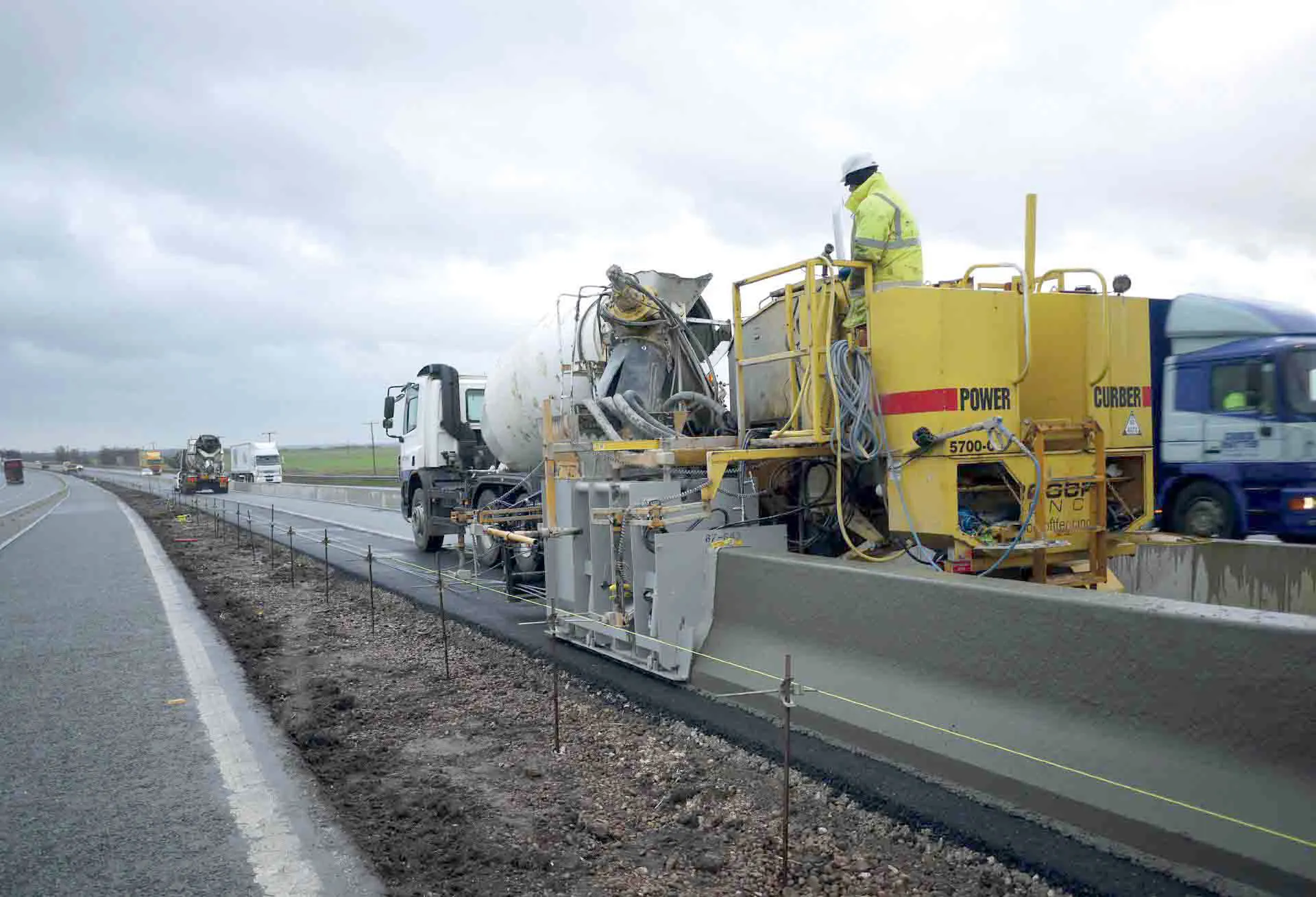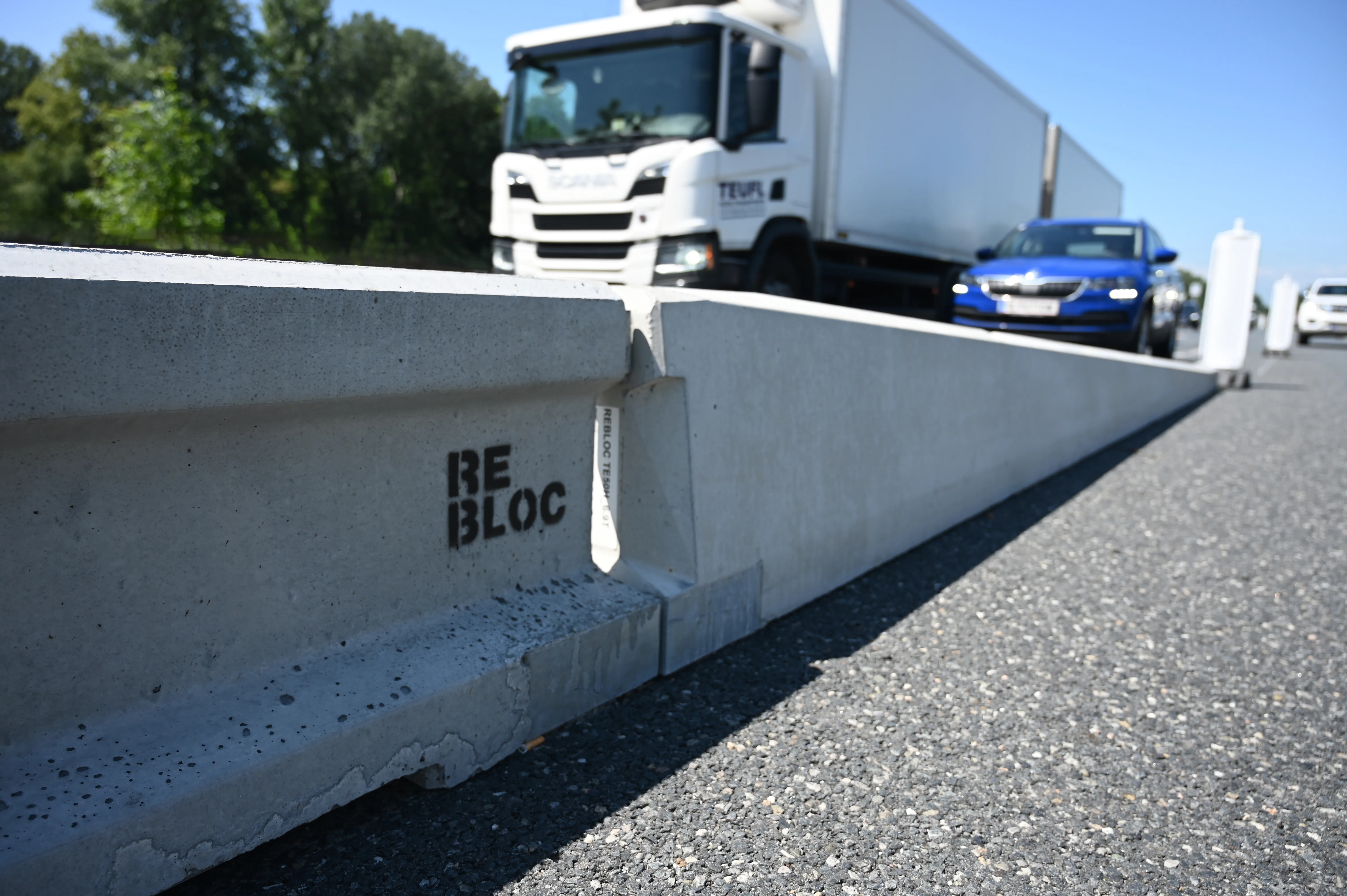
Rebloc has developed an end-terminal for performance class P2A barriers with an impact severity level A designed specifically for traffic management on construction sites.
The end terminal has been successfully tested according to ENV 1317-4 and is particularly suitable for use in combination with temporary vehicle restraint systems.
The company, based in Austria, said that a standout feature of the system is the unanchored setup and the narrow width of only 240mm. The width matches exactly with the width of the connected temporary Rebloc barrier.
Additionally, the end terminal element is integrated into the overall system via the coupling element in a system-compliant manner. It can be used at the beginning and end of the vehicle restraint system without any anchoring into the ground.
Thanks to the successful 80km/h impact tests, the end terminal is ideal for use in construction areas, according to the company. The key feature is the redirecting functionality of the end terminal, which prevents the sudden stopping of the impacting vehicle and gives the following road users enough reaction time.
In congested traffic scenarios where traffic has no alternative routes, the feature is of essential preventing rear-end collisions. This is especially significant considering the official legal distance regulations and potential liability issues.
It has been successfully crash-tested with a connected temporary T3/W1 system, with no additional anchoring into the ground required. Meanwhile, the narrow width of only 240mm is compliant with the temporary Rebloc vehicle restraint systems. Importantly, it requires low maintenance and is quickly repaired after an impact


